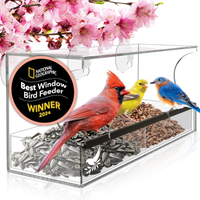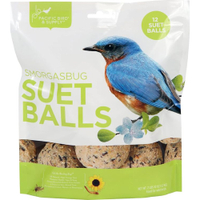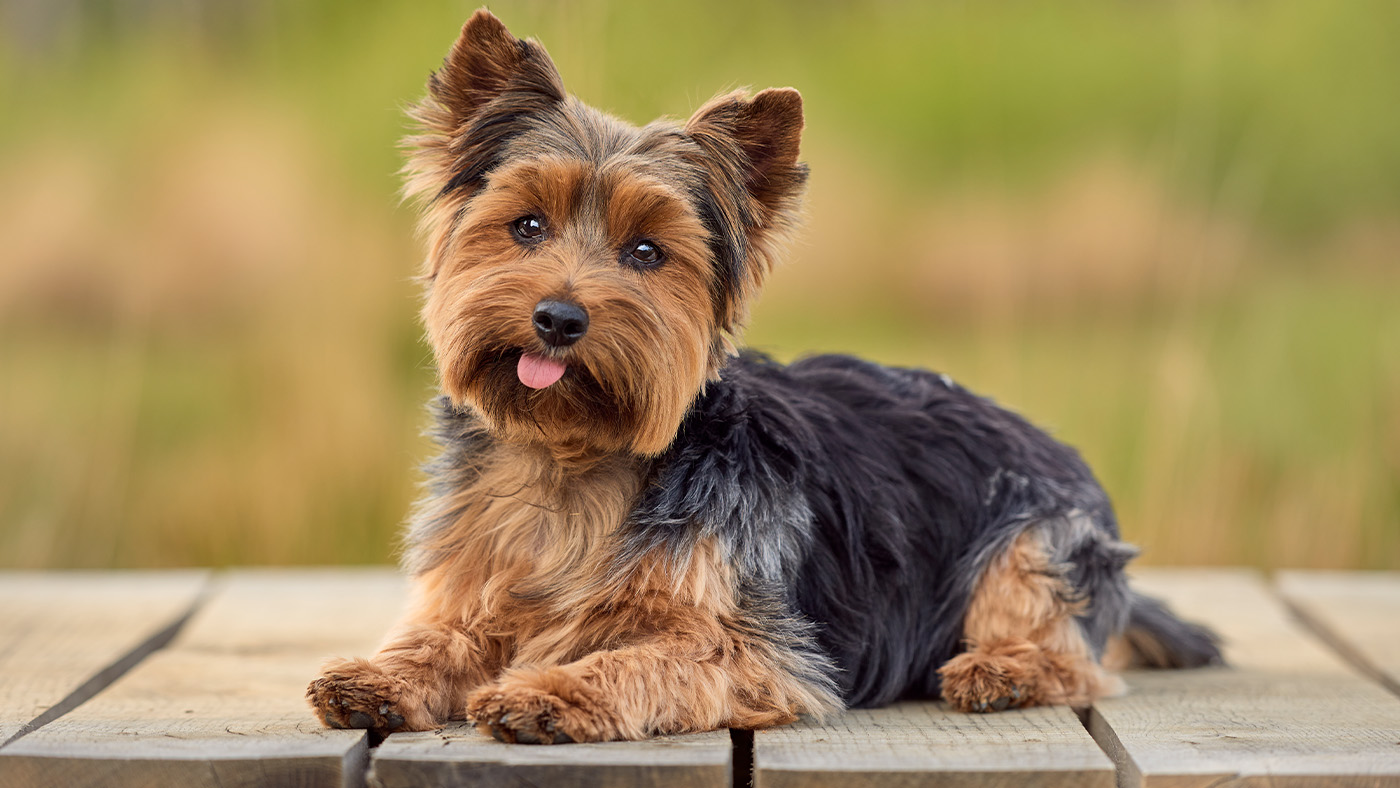A vet reveals what not to feed wild birds (some of these will surprise you!)
If you're wondering what not to feed wild birds, our expert guide can help.
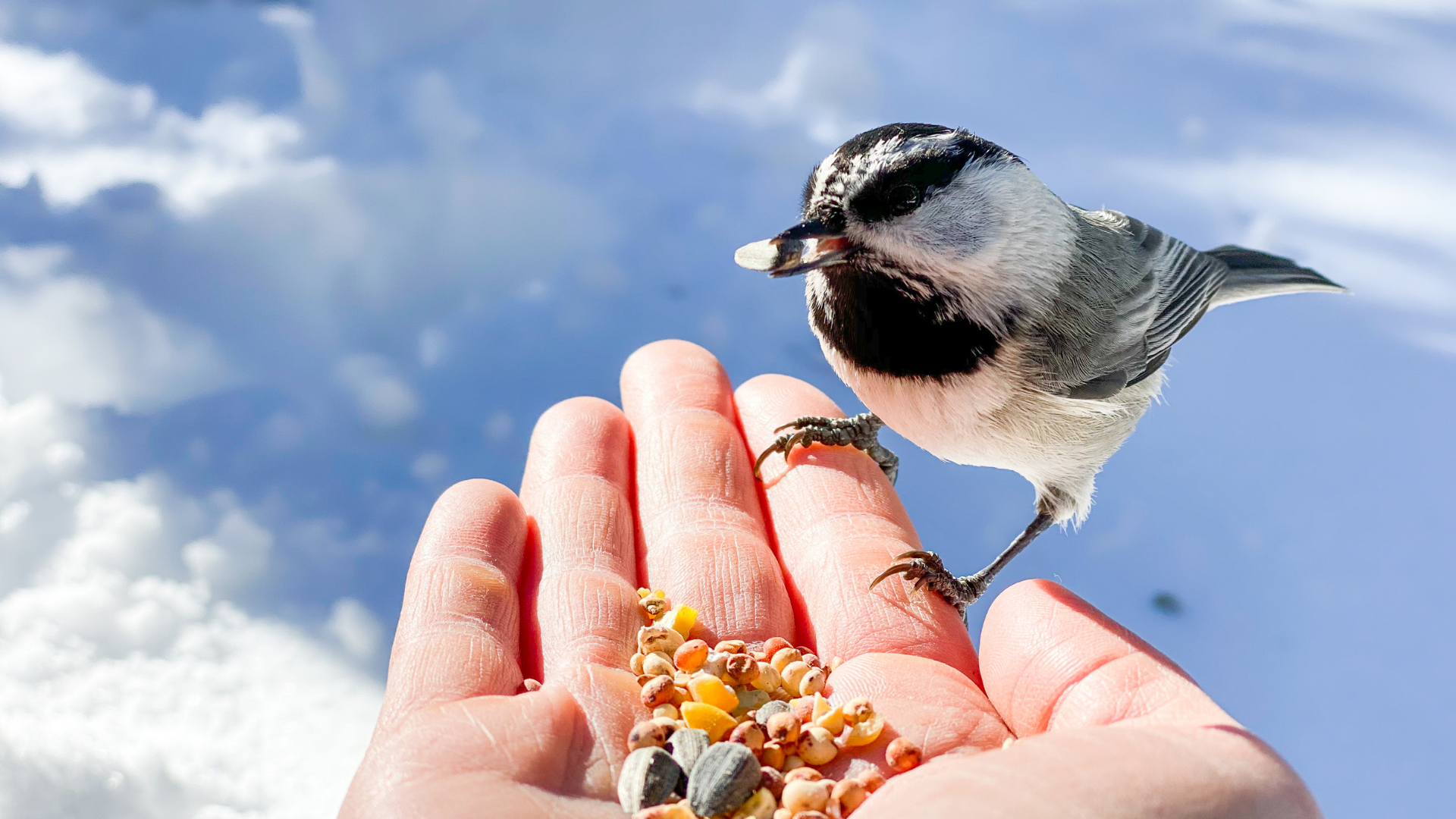
If you want to attract more flying friends into your garden, you need to know what not to feed wild birds. It's a common misconception that you can give them food like bread or chips, but it turns out that you should avoid doing this for many reasons (which we'll get into later).
Instead, you should opt for the best bird food which is healthier, safer, and contains the nutrients they need. Or, if you fancy making them a DIY treat, you could learn how to make bird suet — our two-ingredient recipe is easy to follow and super affordable.
With the help of vet Dr. Rebecca MacMillan, we've listed eight things you should never feed wild birds and explained why they're a bad idea.
What not to feed wild birds
Nobody likes to see good food go to waste, so you might be tempted to feed the wild birds your leftovers. However, this can sometimes cause more harm than good as some kitchen ingredients, like onions, can be toxic. Here are Dr. MacMillan's big no-no's:
1. Bread: This might come as a surprise, but you should never feed bread to birds. It's not toxic, but it has no nutritional value and a "bird that fills up on bread will end up having an unbalanced diet".
2. Milk and dairy items: Since birds are lactose-intolerant, feeding them milk and dairy items can lead to serious digestive upset.
3. Bacon or bacon rinds: Bacon contains high levels of salt and additives which can be dangerous to birds.
4. Processed foods: Avoid processed foods, like potato chips, crackers, donuts, french fries, and cookies, which are unhealthy for them.
Dr. MacMillan says: "Although their high energy density is likely to be popular with wild birds, the sugar, salt, and unhealthy fats these contain are not great for their health."
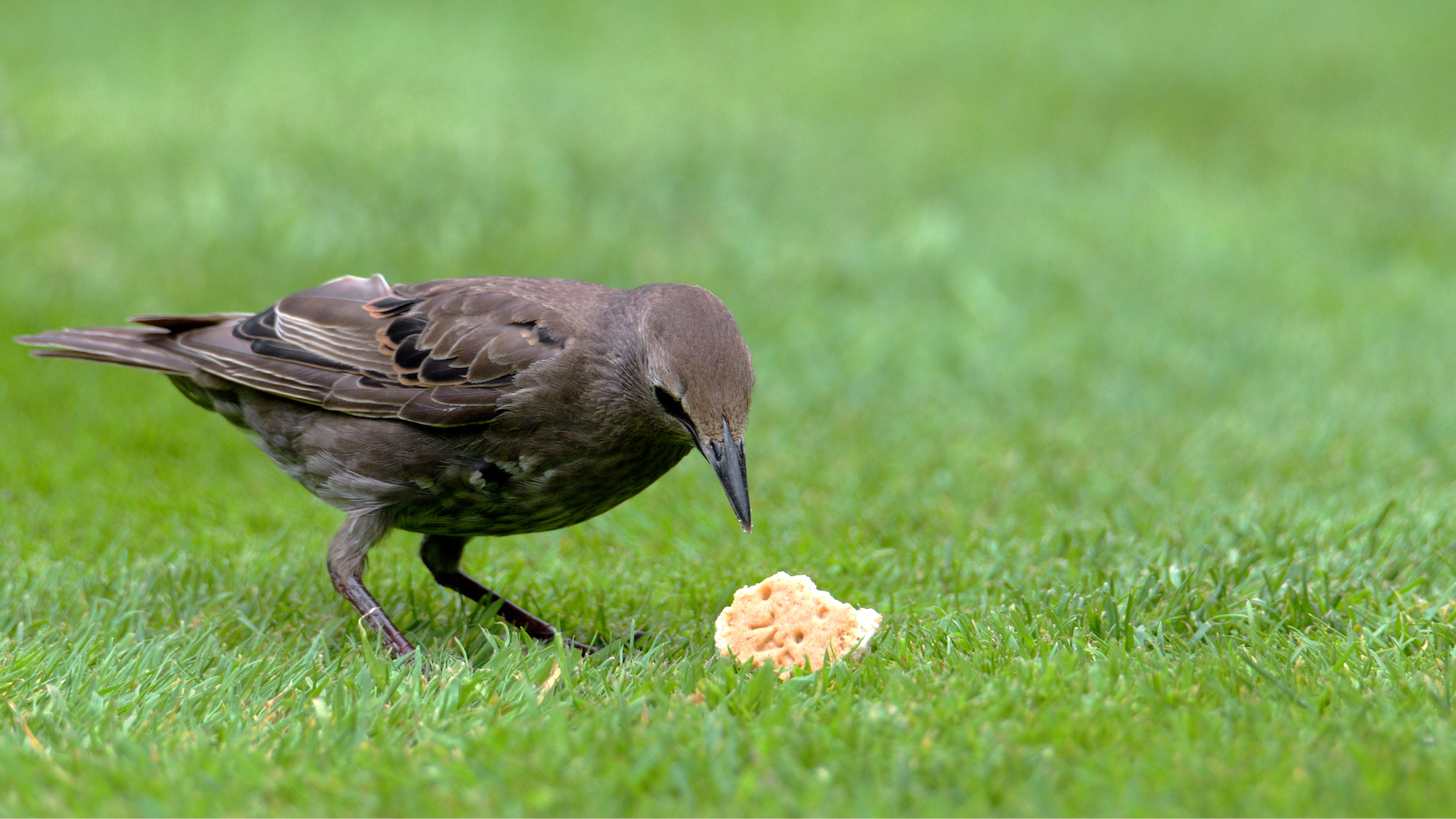
5. Chocolate: Chocolate might be delicious for us, but it's very dangerous for our flying friends as it contains toxic caffeine and theobromine.
6. Onions and garlic: Onions and garlic are also toxic to birds and can cause health issues like ulcers and anemia.
7. Avocados: As avocados contain persin (a natural fungicide that's toxic to birds), you should avoid feeding them at all costs.
8. Raw dried beans: You should also steer clear of raw dried beans which contain a toxin that's dangerous for birds called hemagglutinin. However, Dr. MacMillan says that if they're cooked, they're perfectly safe to put in the best bird feeder.
Window Bird Feeder
This clear feeder sticks onto your window and is perfect for bird-watching from your home. It has six weather-proof suctions, a squirrel-proof design, and it's easy to put together.
Should I feed birds in my garden?
Now you know what you shouldn't feed birds, you might be left wondering if you should feed them at all... We can reassure you that it's a wonderful thing to do all year round - especially in the wintertime when food supplies are scarce.
You can attract particular birds into your yard by putting out specific foods that they enjoy (e.g. mealworms for robins). If you're feeling unsure, our feature on what to feed birds from your garden is a good place to start and has some great ideas.
Dr. MacMillan says: "Try offering mixed bird seed, peanuts (offer this as chopped pieces or in a feeder specifically designed for peanuts), and sunflower seeds. You could also try mealworms, either dried or live, which many birds enjoy as a protein-rich treat. Suet is often associated with the winter months, but during the breeding and nesting season, birds will also benefit from this concentrated energy source."
Pacific Bird & Supply Co. Smorgasbug Suet Balls
These suet balls are high in energy and protein and will attract a variety of birds into your yard. They're free from artificial colors, flavors, and preservatives, and you get six in a pack.
To keep rodent intruders at bay, you could invest in the best squirrel-proof bird feeder, use a bird feeder pole, or put tables away from walls or trees.
You might also want to read: What to feed a baby bird.
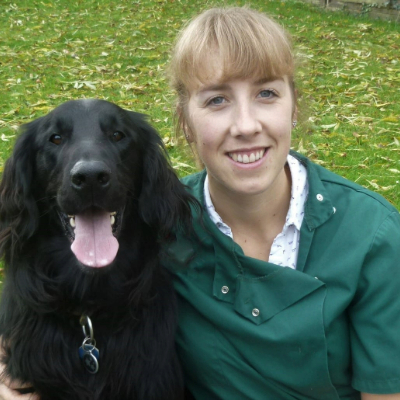
Rebecca is a vet surgeon who graduated in 2009 from the Royal Veterinary College in London. She has a wealth of experience in first opinion small animal practice, having done a mixture of day-to-day routine work, on-call emergency duties, and managerial roles over the years. She enjoys medicine in particular and she is proud to have recently achieved a BSAVA postgraduate certificate in small animal medicine (with commendation). She writes on various feline and canine topics, including behavior, nutrition, and health. Outside of work and writing she enjoys walking her own dog, spending time with her young family and baking!
PetsRadar Newsletter
Get the best advice, tips and top tech for your beloved Pets
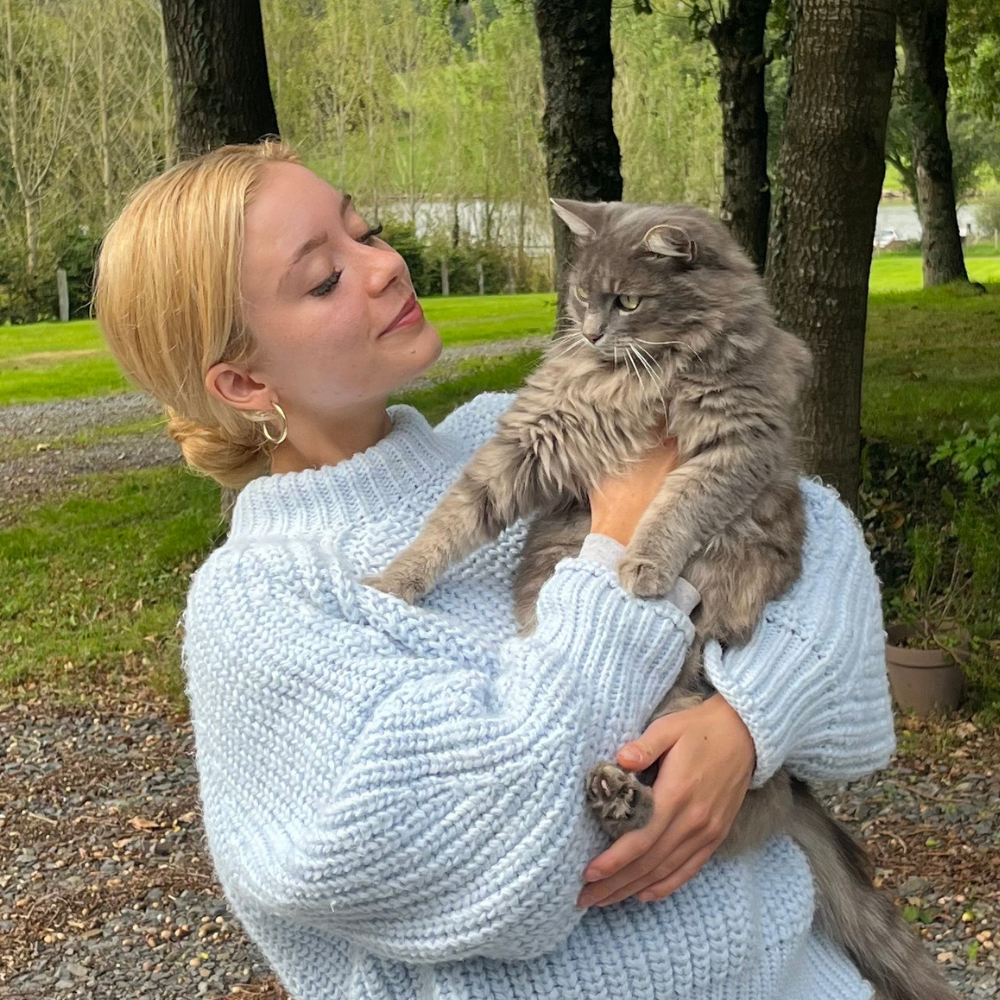
Megan is a Staff Writer at PetsRadar, covering features, reviews, deals, and buying guides. She has a wealth of experience caring for animals, having grown up with dogs, cats, horses, guinea pigs, and more throughout her life. She studied BA Journalism at the University of Westminster, where she specialized in lifestyle journalism and was editor of Smoke Radio’s lifestyle website. Megan works alongside qualified vets and accredited trainers to ensure you get the best advice possible. She is passionate about finding accurate and helpful answers to your pet-related questions.
